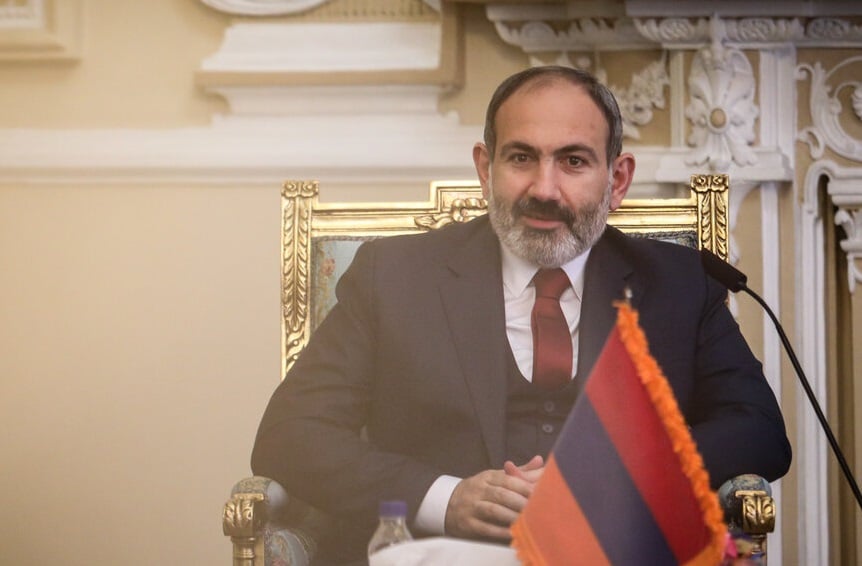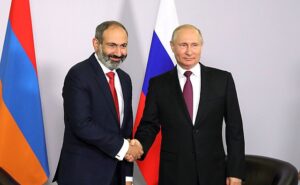The political situation in Armenia has been far from stable since the Russian-brokered peace agreement was signed almost three months ago. Opposition against the current government and Prime Minister Pashinyan is growing. The opposition parties have mobilized themselves under the name of the Homeland Salvation Movement (HSM) and demand the resignation of Pashinyan and his government. Mass protests have erupted throughout the country since the 10th of November 2020. Several attempts have been made by the government to arrest opposition members and protesters. As a result, there is an ongoing dispute between the judiciary and Pashinyan’s government over those arrests. The country’s former President Robert Kocharian, who is currently under trial for his role in cracking down the opposition in 2008, has presented himself as the only viable alternative to Pashinyan’s rule.
Opposition and public call for elections
The sixteen opposition parties in Armenia have been calling Pashinyan to step down and hand over power to an interim government until elections are held. These include the Prosperous Armenia Party (PAP) of Gagik TsarukyanIn, the Bright Armenian Party (BAP) under Vazgen Manukyan, as well as the former governing Republic Party of Armenia (ARF). In a joint effort the parties have mobilized several anti-Pashinyan protests since November 10th peace accord. Opposition has grown since the end of the six week Armenian-Azerbaijan war this fall, in which over 4000 people fell victim. In a trilateral peace-accord between the two neighbouring Caucasus states and Russia, the Armenian government lost control over parts of the Nagorno-Karabakh region which it had governed for over 30 years. One of the latest protests of several thousand people took place in the country’s capital Yerevan on January 28th, where at least 21 people were arrested. Despite a united opposition Pashinyan remains in power with an overwhelming majority and has so far refused to step down. Even though elections were only scheduled to take place in December 2023, the Armenia’s Prime Minister stated that earlier elections might be a possibility. The government does not seem to be in a hurry though, as a date for early elections has not been put forward yet. Pashinyan also threatened to cancel its plans for early elections if opposition parties would continue to demand his resignation.
Clash between government and judiciary
The current Armenian government has installed two judicial watchdogs, as Prime Minister Pashinyan claimed the judicial system sought to push him out of power. In a vote that was boycotted by the sixteen opposition parties, two parliamentarians are put forward to nominate, sanction and dismiss the country’s judges. Supreme Judicial Council chairman Ruben Vartazarian has refuted the Prime Minister’s claims and accused Pashinyan of “purging” the judiciary in his address to the Parliament on January 22th. Over the last three months the Armenian judiciary has opposed the arrests of opposition members that have been highly critical of the government. Opposition parties have increasingly criticized the government for ceding several parts of its territory to Azerbaijan after the six week war. Several opposition leaders were arrested on the basis of “organization of mass disorder” and “attempted murder”. However, they have so far been released as the judicial power continues to maintain its independent position.
Former President will take part in possible elections
Armenia’s former president Robert Kocharian, has presented himself as the only alternative for Pashinyan’s government. In an interview he states that the current government should be dismissed and he would win if he would take part in early elections. Currently he is under trial for his role in the crackdown of the opposition in 2008. His bold statements both add fuel to the fire, but also might raise concerns with other opposition parties who would not like to see this old figure return to politics. Meanwhile, the status-quo between Armenia and Azerbaijan remains unstable and as a result Russian and Turkish troops are stationed to protect the peace between the two countries. Armenia is not likely to regain much of its territory anytime soon, which has its implication on the country’s domestic political situation. The question now is whether Pashinyan will succumb to the pressure and allow for early elections to take place.
Sources: Azatutyun1, Azatutyun2, Carnegie, EVN , Reuters1, Reuters2, Rferl1, Rferl2, Rferl3, Rferl4, Rferl5
Image: MEHR (Nikol Pashinyan, 2019)



